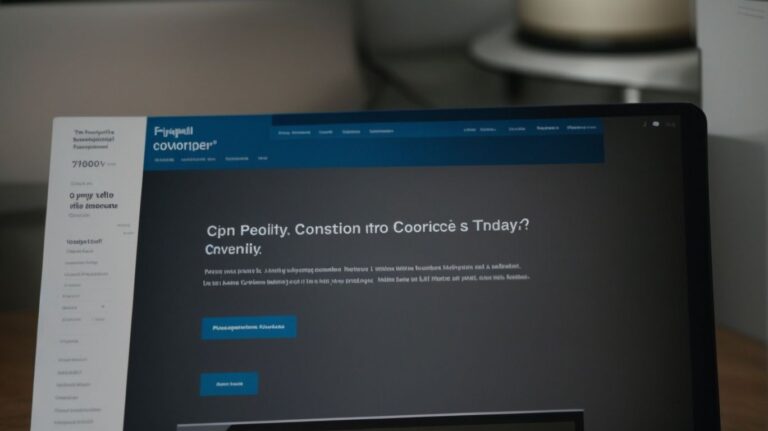Are you interested in pursuing a career in psychology in Arizona? It’s important to understand the practice regulations, requirements, and ethical guidelines that govern the field.
In this comprehensive guide, we’ll explore the education, licensure, and continuing education requirements for psychologists in Arizona. We’ll delve into the scope of practice, including assessment, diagnosis, therapy, and research. We’ll discuss the ethical guidelines that psychologists must adhere to, covering confidentiality, informed consent, and cultural competence.
Whether you’re a student, practitioner, or simply curious about the field, this article will provide valuable insights into psychology practice in Arizona.
Contents
- 1 Key Takeaways:
- 2 What Are Psychology Practice Regulations?
- 3 Why Are Psychology Practice Regulations Important?
- 4 What Are the Requirements for Psychology Practice in Arizona?
- 5 What Are the Scope of Practice for Psychologists in Arizona?
- 6 What Are the Ethical Guidelines for Psychology Practice in Arizona?
- 7 Frequently Asked Questions
- 7.1 What are psychology practice regulations in Arizona?
- 7.2 Who is responsible for creating and enforcing psychology practice regulations in Arizona?
- 7.3 What are the requirements for obtaining a license to practice psychology in Arizona?
- 7.4 Are there any restrictions or limitations on the practice of psychology in Arizona?
- 7.5 How often do psychologists in Arizona need to renew their license?
- 7.6 What should I do if I have a complaint about a psychologist’s practice in Arizona?
Key Takeaways:
What Are Psychology Practice Regulations?
Psychology practice regulations encompass the set of rules and standards established by the Arizona Board of Psychologist Examiners to govern the professional conduct and practice of psychologists in the state of Arizona.
These regulations play a vital role in maintaining the integrity and safety of psychological services provided to the public. They outline the ethical principles, guidelines for assessments and interventions, confidentiality standards, and requirements for ongoing professional development.
By adhering to these regulations, psychologists not only ensure the well-being of their clients but also contribute to the overall quality and credibility of the profession. The regulations serve as a framework for accountability, contributing to public trust and confidence in the psychological services offered.
Why Are Psychology Practice Regulations Important?
Psychology practice regulations hold significant importance in ensuring the competence, ethics, and professionalism of psychologists practicing in Arizona, thereby safeguarding the well-being of clients and maintaining the integrity of the profession.
These regulations establish clear guidelines for ethical conduct, ensuring that psychologists adhere to the highest standards of practice and behavior. They help to foster a sense of trust and confidence in the profession among both clients and the general public.
These regulations also serve to protect vulnerable clients by setting boundaries and standards for the delivery of psychological services, ultimately enhancing client protection.
What Are the Requirements for Psychology Practice in Arizona?
The requirements for psychology practice in Arizona combine elements of educational, experiential, and examination criteria set forth by the Arizona Board of Psychologist Examiners to ensure the competency and proficiency of aspiring psychologists in the state.
To become a licensed psychologist in Arizona, individuals are required to complete a doctoral degree in psychology from a regionally accredited institution. The degree must have a focus on clinical or counseling psychology as approved by the board. Applicants must also complete at least two years of supervised experience, totaling 3,000 hours, under the guidance of a licensed psychologist.
Candidates must pass the Examination for Professional Practice in Psychology (EPPP) and the Arizona state jurisprudence examination to obtain licensure. Once all requirements are met, individuals can apply for licensure through the Arizona Board of Psychologist Examiners. This involves providing evidence of their education, supervised experience, and examination scores, as well as fulfilling any other necessary paperwork and fees.
Education and Training
Education and training for aspiring psychologists in Arizona entail the completion of a doctoral degree in psychology from an accredited institution, complemented by supervised clinical internships and specialized training that align with the requirements stipulated by the Arizona Board of Psychologist Examiners.
Doctoral degrees play a pivotal role in preparing psychologists to handle the multifaceted demands of the profession, emphasizing advanced research skills, critical thinking, and clinical expertise.
Internship experiences offer invaluable hands-on training, allowing aspiring psychologists to apply theoretical knowledge in real-world settings, gain practical skills in psychological assessment and intervention, and cultivate ethical and professional conduct.
- Specialized training, such as in forensic psychology, child and adolescent psychology, or neuropsychology, provides a deeper understanding of specific client populations and complex psychological conditions, enriching the psychologist’s clinical repertoire.
- The Arizona Board of Psychologist Examiners mandates that psychologists meet specific educational and training requisites to ensure the highest standards of practice, ethical conduct, and client care.
Licensure and Certification
Licensure and certification for psychologists in Arizona involve the successful completion of the licensure examination administered by the Arizona Board of Psychologist Examiners, in conjunction with meeting the professional standards set forth by relevant organizations such as the National Register of Health Service Providers in Psychology, ABPP, and CPQ.
Aspiring psychologists in Arizona must adhere to stringent examination requirements as part of the licensure process. The examination, designed by the Arizona Board of Psychologist Examiners, evaluates candidates on a comprehensive range of psychological principles and practices, ensuring that they meet the essential competency standards.
Plus the examination, psychologists must fulfill the professional standards established by reputable organizations such as the National Register of Health Service Providers in Psychology. These standards encompass ethical guidelines, continuing education, and ongoing professional development.
Psychologists seeking licensure in Arizona notably align themselves with professional entities like ABPP and CPQ, which advocate for excellence in psychological practice and provide valuable resources and support to licensed psychologists.
Continuing Education
Continuing education for psychologists in Arizona encompasses the ongoing pursuit of professional development through specialized training, clinical advancements, and educational programs tailored to the diverse domains of clinical, counseling, and school psychology, in alignment with the state requirements and industry advancements.
This ongoing education is vital to ensure that psychologists stay updated with the latest research, ethical considerations, and treatment modalities within their specialized areas.
By engaging in continued education, psychologists can enhance their expertise in areas such as trauma-informed care, forensic psychology, or neuropsychological assessment, catering to the evolving needs of their clients.
What Are the Scope of Practice for Psychologists in Arizona?
The scope of practice for psychologists in Arizona encompasses a diverse range of professional activities, including assessment, diagnosis, psychotherapy, counseling, consultation, supervision, research, and teaching, aimed at addressing the multifaceted psychological needs of individuals, groups, and communities within the state.
Psychologists engage in a variety of activities that involve providing comprehensive mental health services to individuals of all ages, from children and adolescents to adults and seniors. They play a critical role in evaluating and understanding the complex interplay of cognitive, emotional, and behavioral factors in diverse populations.
With their expertise, psychologists work in various clinical settings, educational institutions, and organizational environments to promote mental wellness, prevent and intervene in mental health disorders, and enhance overall psychological well-being.
Assessment and Diagnosis
The assessment and diagnosis component within the scope of practice for psychologists in Arizona involves the systematic evaluation, analysis, and classification of psychological conditions, behaviors, and mental health disorders, aligning with the professional requirements and state guidelines governing clinical practices.
This process encompasses a comprehensive gathering of information through various reliable sources, including interviews, standardized assessment tools, and behavioral observations.
Psychologists employ validated assessment protocols to ensure accuracy and reliability in their diagnostic procedures, considering the cognitive, emotional, and behavioral aspects of the individuals under evaluation.
The integration of ethical considerations, cross-cultural factors, patient history and context further enriches the diagnostic framework and fosters a holistic approach towards understanding and addressing psychological conditions.
Psychotherapy and Counseling
The psychotherapy and counseling elements within the scope of practice for psychologists in Arizona involve the provision of therapeutic interventions, counseling services, and clinical support tailored to the diverse psychological needs and well-being of individuals, aligning with the clinical requirements and state guidelines.
Psychotherapy involves the in-depth exploration of an individual’s emotions, thoughts, and behaviors to address underlying issues and promote personal growth. Therapeutic interventions encompass various approaches such as cognitive-behavioral therapy, psychodynamic therapy, humanistic therapy, and more, each tailored to meet the unique needs of clients.
Counseling services encompass a wide range of support, including marriage and family counseling, career guidance, addiction counseling, and trauma-focused therapy. The aim is to provide a supportive and empathetic environment for clients to explore their concerns and develop coping strategies.
Clinical support extends to collaborative efforts with other healthcare professionals, consultation with referring physicians, and adherence to ethical standards and legal regulations to ensure the highest quality of care for clients.
Consultation and Supervision
The consultation and supervision dimensions within the scope of practice for psychologists in Arizona encompass the provision of expert advice, professional guidance, and oversight to individuals, organizations, and professionals within the field of psychology, adhering to the professional requirements and state guidelines for effective practice.
Expert advice plays a critical role in the development and enhancement of psychological practices in the state of Arizona. Psychologists often seek consultation from experienced professionals to ensure their methods align with ethical standards and best practices.
Professional guidance offers valuable support in navigating complex cases and ethical dilemmas, fostering a culture of continuous learning and improvement within the psychological community.
Supervision provides essential oversight to ensure the delivery of high-quality services and ethical conduct. It helps in maintaining compliance with state regulations, ethical guidelines, and legal frameworks, thereby enhancing the accountability and integrity of psychological practice.
Supervision also serves as a means of professional development, offering opportunities for constructive feedback and skill enhancement to psychologists at different stages of their careers.
Research and Teaching
The research and teaching components within the scope of practice for psychologists in Arizona encompass the pursuit of scholarly inquiry, academic instruction, and educational leadership, aimed at advancing psychological knowledge, professional development, and educational initiatives within the state, in compliance with the state requirements and professional standards.
Psychologists engage in diverse research endeavors to explore the human mind and behavior, diving into the complexities of mental processes, emotional reactions, and behavioral patterns. This scholarly inquiry not only contributes to the growth of psychological knowledge but also plays a pivotal role in enhancing the evidence-based practices for addressing various mental health challenges prevalent in Arizona.
The academic instruction aspect involves preparing the next generation of psychologists through comprehensive and rigorous educational programs. These programs integrate the latest research findings and therapeutic interventions, equipping future psychologists with the necessary skills to effectively address the diverse needs of individuals and communities within Arizona.
Educational leadership in the psychological domain entails spearheading initiatives to improve mental health awareness, advocate for evidence-based interventions, and foster collaborations with educational institutions and community organizations. By assuming a leadership role, psychologists contribute to the development and implementation of impactful strategies to address mental health disparities and promote psychological well-being across different demographics within the state.
What Are the Ethical Guidelines for Psychology Practice in Arizona?
The ethical guidelines for psychology practice in Arizona encompass a comprehensive framework that governs the principles of confidentiality, privacy, informed consent, professional boundaries, cultural competence, and dual relationships, ensuring the ethical conduct and integrity of psychologists within the state.
Confidentiality is a core tenet of ethical psychological practice, emphasizing the importance of protecting client information from unauthorized disclosure. This includes maintaining the privacy of client records and communications, limiting access to sensitive information, and obtaining explicit consent before sharing any confidential material.
Professional boundaries, on the other hand, guide psychologists in maintaining appropriate relationships with their clients, colleagues, and other professionals, preventing any potential conflicts of interest or exploitation.
Confidentiality and Privacy
Confidentiality and privacy within the ethical guidelines for psychology practice in Arizona revolve around the obligation to safeguard sensitive information, maintain privacy rights, and uphold professional standards of discretion and confidentiality, as per the state requirements and ethical norms.
Psychologists in Arizona are bound by ethical principles to protect the confidential nature of their clients’ personal information. This means maintaining strict privacy measures to ensure that sensitive data remains secure and undisclosed.
Respecting privacy rights is a fundamental aspect of ethical practice, encompassing the individual’s right to control the dissemination of their personal information. Upholding such principles not only fulfills regulatory obligations but also fosters trust and rapport between the psychologist and the client.
Informed Consent
Informed consent as outlined in the ethical guidelines for psychology practice in Arizona pertains to the transparent communication, voluntary agreement, and mutual understanding between psychologists and clients regarding the nature and scope of psychological services offered, in compliance with the professional requirements and state guidelines.
It is crucial for psychologists to engage in open and honest discussions with their clients, ensuring that all relevant information about the treatment, potential risks, and alternative options is comprehensively conveyed. This transparent communication allows clients to make informed decisions about their psychological care.
The voluntary agreement aspect signifies that clients have the autonomy to consent to or refuse any recommended interventions, ensuring their autonomy and self-determination within the therapeutic process.
Professional Boundaries
Professional boundaries within the ethical guidelines for psychology practice in Arizona emphasize the maintenance of appropriate, ethical, and professional relationships between psychologists and clients, colleagues, and relevant stakeholders, aligning with the clinical requirements and state guidelines.
These boundaries serve as a vital framework for upholding the ethical standards, ensuring that the psychologist-client relationship is based on trust, confidentiality, and respect.
Psychologists must maintain objectivity, avoid dual relationships, and refrain from exploiting their clients for personal, financial, or emotional gain. They are required to establish clear boundaries with colleagues, supervisors, and students, promoting a professional demeanor and ethical conduct in all professional interactions.
Cultural Competence
Cultural competence as stipulated in the ethical guidelines for psychology practice in Arizona pertains to the acknowledgment, understanding, and incorporation of diverse cultural perspectives and identities, fostering inclusive and respectful practices in accordance with the state requirements and professional norms.
This framework is essential to ensure that psychologists are equipped to engage effectively with individuals from various cultural backgrounds, thereby enhancing the quality of their services and creating a sense of trust and rapport.
By acknowledging the impact of culture on human behavior and mental health, psychologists can tailor their interventions and treatments through a culturally sensitive lens, promoting better therapeutic outcomes.
Dual Relationships
Dual relationships within the ethical guidelines for psychology practice in Arizona address the complexities and ethical considerations associated with multiple roles or relationships that psychologists may have with clients, organizations, or communities, in accordance with the professional requirements and state guidelines.
It is crucial for psychologists to navigate the delicate balance of maintaining professional boundaries while recognizing the potential impact of dual relationships on the therapeutic process.
The ethical responsibilities extend to ensuring the client’s well-being, confidentiality, and autonomy, while also acknowledging the dynamics of multiple roles. Understanding the complexities and implications of dual relationships enables psychologists to ethically manage conflicts of interest and power differentials, promoting the utmost standard of care and professional conduct.
Frequently Asked Questions
What are psychology practice regulations in Arizona?
Psychology practice regulations in Arizona refer to the laws and guidelines that govern the practice of psychology in the state. These regulations set standards for licensing, ethical conduct, and professional responsibilities for psychologists in Arizona.
Who is responsible for creating and enforcing psychology practice regulations in Arizona?
The Arizona State Board of Psychologist Examiners is responsible for creating and enforcing psychology practice regulations in the state. This board is made up of licensed psychologists and public members appointed by the governor.
What are the requirements for obtaining a license to practice psychology in Arizona?
In order to obtain a license to practice psychology in Arizona, an individual must have a doctoral degree in psychology from an accredited program, complete a certain number of supervised hours, pass the national licensing exam, and meet other specific requirements set by the state board.
Are there any restrictions or limitations on the practice of psychology in Arizona?
Yes, there are certain restrictions and limitations on the practice of psychology in Arizona. For example, psychologists are not allowed to prescribe medication, and there are strict guidelines for treating minors and reporting cases of abuse or neglect.
How often do psychologists in Arizona need to renew their license?
Psychologists in Arizona must renew their license every two years. This includes completing continuing education requirements and paying a renewal fee.
What should I do if I have a complaint about a psychologist’s practice in Arizona?
If you have a complaint about a psychologist’s practice in Arizona, you can file a complaint with the Arizona State Board of Psychologist Examiners. This board investigates complaints and takes disciplinary action if necessary to protect the public from unethical or incompetent practices.






